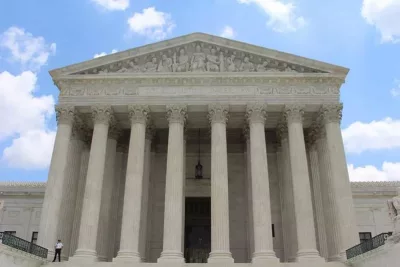
- Originally Published on May 13, 2024
Proving Defamation: The Crucial Differences for Public Figures vs Private Figures
Being the target of a defamatory attack on your character can feel devastating. Not only does it threaten the reputation you’ve worked hard to build, but overcoming it in court can be an uphill battle. While public figures can sue for defamation, they face a higher burden of proof than private citizens.
In this article, I’ll explain the key legal standards for public figure defamation lawsuits, how to prove actual malice, and strategies to protect your reputation. As a defamation attorney who has represented numerous public figures, I’ve seen firsthand the unique challenges these cases present. My goal is to provide clear, actionable guidance to help you navigate this difficult situation and regain control of your narrative.
Do You Qualify as a Public Figure Under Defamation Law?
A crucial initial question in any defamation case is determining whether you are considered a public or private figure. This classification dictates the legal standards you’ll face in court. Generally, public figures fall into three categories:
Public Officials: Individuals who hold or have been elected to public office, such as politicians, judges, and high-ranking government employees.
All-Purpose Public Figures: People who have achieved pervasive fame or notoriety, such as celebrities, renowned business leaders, and national media personalities.
Limited-Purpose Public Figures: Individuals who have thrust themselves into the public spotlight on a particular issue or controversy, such as activists, outspoken CEOs, or people involved in high-profile legal disputes.
To assess whether you might qualify as a limited-purpose public figure, ask yourself:
- Have I voluntarily taken a prominent role in a specific public controversy?
- Do I have access to effective channels of communication to counter defamatory statements?
- Have I assumed a position of special prominence in the public eye on this issue?
- Is the allegedly defamatory statement related to my role in the controversy?
If you answer “yes” to most of these questions, a court may deem you a limited-purpose public figure for defamation claims related to that particular controversy.
It’s important to note that certain high-profile professions, like entertainment, politics, and professional sports, create a strong presumption of public figure status. Even lower-level participants in these fields, such as local politicians or minor-league athletes, may face the heightened actual malice standard in defamation suits.
What Makes Defamation Lawsuits Tougher for Public Figures?
To win a defamation lawsuit, all plaintiffs must prove the defendant made a false statement of fact that was communicated to a third party and caused harm to their reputation. However, the standards diverge from there.
| Public Figures | vs. | Private Figures |
|---|---|---|
| Must prove defendant acted with "actual malice" | Standard of Fault | Must prove defendant was at least negligent |
| Actual malice = knowledge of falsity or reckless disregard for the truth | Definition of Fault Standard | Negligence = failure to exercise reasonable care |
| protects free speech about public affairs and public officials | Rationale for Differing Standards | recognizes private individuals deserve more reputational protection |
The landmark Supreme Court case New York Times v. Sullivan established this heightened “actual malice” requirement for public officials suing for defamation. Subsequent rulings extended it to encompass public figures more broadly. The court reasoned that robust, uninhibited public debate is vital to democracy, so speech about public figures warrants extra First Amendment protection.
What does this mean in practice? If you’re a public figure plaintiff, you’ll need to prove more than just that the defamatory statement was false. You must provide clear and convincing evidence the defendant knew it was false or recklessly disregarded whether it was true. Essentially, the defendant must have knowingly lied or willfully ignored facts that would debunk the statement. This is a substantially higher bar than showing mere negligence. In practice, this often means showing:
- The defendant deliberately lied or fabricated information
- They had obvious reason to doubt their source but failed to verify
- They deviated from professional standards in ways that support an inference of knowing falsity
Needless to say, this is a heavy burden. You must have clear, affirmative evidence of the defendant’s state of mind at the time of publication. Discoveries like internal emails, edits that distort the truth, or witnesses with knowledge of the defendant’s doubts can be game-changers
In my experience representing high-profile clients, building a case to prove actual malice is the most pivotal and challenging aspect of public figure defamation suits. Obtaining that “smoking gun” evidence of the defendant’s state of mind at the time of publication is rarely straightforward. However, certain types of evidence can be persuasive, which I’ll discuss next.
How Can You Prove Actual Malice?
Meeting the actual malice standard requires more than pointing out factual inaccuracies or sloppy reporting. You must demonstrate the defendant acted with serious doubts about the truth of their statement, or worse, intentionally lied. Some forms of evidence that may support an actual malice claim include:
- Documents or communications revealing the defendant’s state of mind, biases, or ill intent toward the plaintiff
- Depositions or testimony from witnesses with inside knowledge of the defendant’s motivations and fact-checking process
- Evidence that the defendant previously published similar false claims about the plaintiff or others
- Reports or edits to the story that were overruled or discarded
- Proof the defendant relied on an overtly unreliable or unverified source
- Factual inconsistencies that would put a reasonable person on notice to doubt the allegations
Establishing actual malice is a fact-intensive inquiry that examines the totality of the reporting and publication process. The key is to focus your discovery efforts on uncovering direct and circumstantial evidence of the defendant’s knowledge and motives.
Real Case Example: Harte-Hanks Communications v. Connaughton
For instance, in Harte-Hanks Communications v. Connaughton, the Supreme Court found actual malice when a newspaper intentionally avoided interviewing a key witness they suspected would contradict their false story. The paper’s refusal to fully investigate, while not conclusive, supported an inference of reckless disregard for the truth.
Real Case Example: Curtis Publishing Co. v. Butts
For example, in the landmark case of Curtis Publishing Co. v. Butts, a college football coach won a $3 million libel verdict against a magazine that falsely accused him of fixing a game. The Supreme Court found actual malice based on evidence that the magazine relied on a single questionable source, ignored conflicting facts, and had a motive to “boost circulation” with a sensational story.
However, courts have also held that evidence like a failure to investigate, an ill will toward the plaintiff alone, or minor mistakes do not necessarily prove actual malice if there are no signs the defendant seriously doubted the overall story. Much depends on the specific context.
Proving actual malice is a high bar, but it’s not insurmountable with the right evidence and legal strategy. In my practice, we’ve succeeded in demonstrating actual malice through diligent discovery, meticulous fact-checking, and a deep understanding of the nuances of defamation law. It’s crucial to work with an attorney experienced in handling public figure defamation cases to assess your options and build the strongest case.
Proving Damages in Public Figure Defamation Cases
If you’re a public figure pursuing a defamation claim, you’ll need to provide clear evidence of the economic and reputational harm you’ve suffered. Here are some common types of damages available and how to prove them:
Actual Damages: These compensate you for direct financial losses caused by defamation, such as lost income, declined business opportunities, or canceled contracts. To prove actual damages, gather documentation like:
- Contracts or deals that were terminated or withdrawn after the defamatory statements
- Financial statements or expert analysis showing declined revenue or profits
- Testimony from business partners or clients confirming lost opportunities
Reputational Damages: These compensate for the harder-to-quantify harm to your public standing and good name. While reputational damages can be significant for public figures, they are challenging to prove. Some evidence that can help includes:
- Polls or surveys showing a measurable decline in your public approval ratings
- Analysis of social media sentiment and negative mentions related to the defamatory content
- Testimony from PR experts on the cost and scope of reputation repair efforts
Punitive Damages: In cases of egregious actual malice, juries may award punitive damages to punish the defendant and deter others from similar conduct. However, the Supreme Court has set constitutional limits on punitive damages, generally requiring them to be proportional to actual damages.
Proving damages as a public figure can be complex and often requires a battery of experts, from business valuators to polling firms. This is critical in overcoming evidentiary hurdles.
Is Suing for Defamation Worth It as a Public Figure?
| Consideration | Pros | Cons |
|---|---|---|
| Damages | Chances to recover compensatory and punitive damages for reputational and economic harm | Damage amounts can be hard to prove and collect, especially for non-economic harm |
| Deterrence | Sends message that knowingly false attacks have consequences; may discourage future defamation | Streisand Effect - a highly public lawsuit can draw more attention to the defamatory content |
| Vindication | Opportunity to expose the falsity of the claims and clear your name in court | Prolonged litigation keeps the negative story in the public eye and may elicit further scrutiny |
| Precedent | A favorable ruling can establish valuable precedent to protect public figures' rights | An unfavorable ruling may set back public figure defamation law and embolden attackers |
| Control | Filing suit lets you seize the initiative and shape the narrative arround the defamatory content | Litigation is unpredictable, expensive, and can take on a life of its own in the media |
Beyond these general tradeoffs, here are some other key considerations that public figures should weigh before pursuing a defamation claim:
Check if you Actually Qualify as a Public Figure. Don’t just assume based on your job or a brush with media attention. The analysis is highly fact-specific. It also varies by state. Consult with an experienced defamation attorney who can assess how a court would likely categorize you.
Jurisdiction and Choice of Law: Online defamation cases often involve thorny jurisdiction and choice of law issues since the content can be accessed anywhere. Where you sue and which state’s laws apply can hugely impact your ability to prove actual malice and damages. You’ll need to strategize with counsel on the optimal forum and law for your claims
Privileges, Defenses, & Anti-SLAPP Statutes: Defendants have an arsenal of privileges and defenses they can try to wield in public figure defamation cases, such as opinion, fair comment on public issues, neutral reportage, and substantial truth. Many states also have anti-SLAPP (Strategic Lawsuit Against Public Participation) statutes that allow defendants to quickly dismiss defamation suits involving speech on matters of public concern and can put you in a position legally of having to present evidence of actual malice at a very early stage. Analyzing the merits of these defenses is critical to gauging your case’s strength. Failure to do so can get your case tossed and stick you with the defendant’s attorney’s fees.
Evaluate your evidence of actual malice. Do you have emails, texts, witness testimony, or documents showing the defendant knew or had strong reason to suspect their statement was false? Absent a smoking gun, it will be an uphill battle. Be realistic about your odds
Act quickly but thoughtfully. Most states have a 1-2 year statute of limitations for libel. While you don’t want to miss the deadline, rushing to file can backfire if you’re not fully prepared. Work with your attorney to gather evidence and build the strongest case before pulling the trigger.
Have a public relations plan. Filing a defamation suit can invite a new round of media scrutiny. Your lawyer should work hand-in-hand with a seasoned PR team to ensure the litigation messaging aligns with your broader reputation management goals. Anticipate and be prepared for the news cycle.
Ultimately, whether suing for defamation is the right move depends heavily on the facts of your situation and your overall goals. As a public figure, the decision to sue guarantees more publicity – for better or worse. You’ll need to weigh if the potential benefits outweigh the risks and opportunity costs. Discussing your case candidly with an experienced defamation attorney can help you gain clarity on the path forward.
5 Ways to Recover Your Reputation Without Suing for Defamation
Litigation isn’t the only way to combat defamatory attacks and rebuild your public standing. In fact, suing can sometimes be counterproductive by drawing more attention to the false allegations. Here are some alternative reputation management strategies I often recommend to public figure clients:
- Issue a clear, factual public response: Promptly issuing a concise statement denying the defamatory claims and providing truthful counter-information can help control the narrative. Stick to the high ground and avoid empty rhetoric or personal attacks.
- Enlist supporting voices: Activating credible third parties who can vouch for your character and the falsity of the charges is powerful. Seek out respected voices in your industry, community leaders, or unbiased experts who can lend support.
- Emphasize your track record: Remind the public of your accomplishments, integrity, and contributions. Draw focus to your substantive body of work and let that speak louder than unsubstantiated allegations.
- Engage in positive PR: Rather than fixating on the defamation, concentrate on generating positive earned media around your current projects and future plans. Shift the story to your good deeds and vision going forward.
- Consult with a reputation management specialist: Professional crisis communicators and PR firms have valuable experience guiding public figures through reputational challenges. Consider enlisting their expertise to help shape your response strategy, monitor the media landscape, and rebuild public goodwill.
The right mix of legal and PR tactics will vary depending on the severity of the defamatory content, your existing public profile and goodwill, and your resources. In some cases, a forceful defamation suit may be your best chance at vindication and deterrence. In others, a more surgical approach focused on targeted counter-messaging and positive PR might better serve your reputational goals.
What to Look for When Hiring a Defamation Attorney as a Public Figure
If you’re considering taking legal action over defamatory statements, choosing the right attorney is critical. Here are some key qualities to look for when hiring counsel as a public figure:
- Proven experience with public figure defamation cases. Look for an attorney who has successfully handled defamation suits on behalf of public figures and understands the unique legal standards and strategies involved. Ask about their track record, notable cases, and how they’ve overcome actual malice hurdles.
- Knowledge of your industry and public profile. Your attorney should take the time to understand your professional world, public reputation, and the potential impacts of the defamatory content and litigation. Familiarity with your industry can help them give more tailored advice.
- Strong investigative and discovery skills. Proving actual malice often turns on uncovering evidence of the defendant’s knowledge and intent. Look for an attorney with a track record of using smart discovery tactics and investigative techniques to build persuasive cases.
- Thoughtful communicator and advisor. In high-profile defamation cases, your attorney is not only your legal representative but often your public spokesperson. Choose a lawyer who is a skillful, composed communicator and can provide sound public relations guidance.
- Transparent about process and fees. Defamation lawsuits can be long, expensive, and unpredictable. Your attorney should be upfront about the anticipated timeline, costs, and range of outcomes. Beware of any lawyer who guarantees a fast resolution or specific results.
Choosing an attorney with these qualities can make a significant difference in the outcome of your case. An experienced defamation lawyer who understands the unique challenges faced by public figures can help you navigate the legal landscape and develop a strong strategy to protect your reputation. While the process can be daunting, having a trusted legal partner can make all the difference.
What to Expect in a Public Figure Defamation Lawsuit
While each case is unique, most public figure defamation lawsuits follow a similar path. Here’s a general roadmap of what to expect:
Filing the Complaint: If you decide to move forward with a lawsuit, your attorney will draft and file a complaint detailing the defamatory statements, the defendant’s fault, and the harm you’ve suffered. The defendant will then have a chance to respond.
Defendant’s Answer and Motions: After being served with the complaint, the defendant will typically file an answer admitting or denying your allegations. They may also file preliminary motions challenging the legal sufficiency of your claims, procedural deficiencies, or an Anti-SLAPP Motion. Your legal team will need to brief and argue against these motions, which can be pivotal junctures in the case. Thorough pre-suit investigation and well-pled allegations of actual malice are critical to surviving dismissal.
Discovery: This is often the longest and most critical stage for public figure plaintiffs. Through document requests, interrogatories, and depositions, your legal team will seek evidence of the defendant’s actual malice, such as:
- Editorial communications showing a reckless disregard for the truth
- Emails or messages revealing a personal vendetta against you
- Testimony from fact-checkers or editors who questioned the story’s accuracy
- The defendant’s history of publishing similar false allegations
Dispositive Motions: At the end of discovery, but before trial, the defendant may file motions to dismiss your case or for summary judgment, arguing that you haven’t provided sufficient evidence of actual malice. Your attorney will need to brief and argue these motions, which can be critical turning points.
Trial and Appeal: If your case survives summary judgment, it will proceed to trial before a judge or jury. Your attorney will present your evidence of defamation and actual malice through witness testimony, documents, and expert analysis. The defendant will have a chance to present their case as well. After the verdict, the losing party may appeal the decision to a higher court. This can extend the timeline and create additional uncertainty.
Throughout this process, it’s crucial to have an experienced defamation attorney who can gather the right evidence, make strategic decisions, and craft persuasive arguments to overcome the actual malice standard. It’s also important to be prepared for the public scrutiny and media attention that often accompanies high-profile defamation trials.
Public Figure Defamation: Protect Your Reputation & Understand Your Options
While defamation lawsuits by public figures face elevated legal hurdles, you’re not powerless against attacks on your reputation. By understanding the law, exploring your options, and enlisting the right legal and PR support, you can regain control of the narrative.
At Minc Law, we’ve helped numerous public figures enforce their rights and recover from defamatory attacks online and in traditional media. We understand the unique pressures you face in the public eye and are committed to providing not only skilled legal representation but also sound reputational counsel.
If you’re a public figure grappling with defamation, I invite you to contact us for a confidential consultation. Together, we can assess the strength of your potential claims, explore the best route to set the record straight and craft a comprehensive strategy to protect your hard-earned reputation. The road ahead may be challenging, but with the right team in your corner, you can emerge with your integrity intact and your name cleared.
We make it our mission to help each of our clients resolve their defamation cases quickly and effectively, without drawing unnecessary attention to the matter. If you are ready to speak with a defamation lawyer, you can reach out to the Minc Law team via Chat or contact form. You can also call us at (216) 373-7706 directly.
Get Your Free Case Review
Fill out the form below, and our team will review your information to discuss the best options for your situation.




